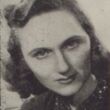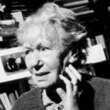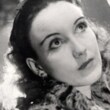Aiding & abetting
Description
More Details
9780385503648
Subjects
Excerpt
Similar Titles From NoveList
Similar Authors From NoveList
Published Reviews
Booklist Review
Spark is one of Britain's most distinguished novelists, with 21 books to her credit, written over the course of a four-decade-long career. Her latest novel shows no diminishment of her still-abiding qualities, which include succinct storytelling, realistic characters finding themselves in fantastic yet fascinating moral dilemmas, and an ability to see the humorous side of making choices between good and evil. With great imagination, Spark tightly weaves a story based on a true event in British political-social life. In 1974, the seventh earl of Lucan allegedly murdered his children's nanny, mistaking her for his wife, whom he then severely injured. He subsequently disappeared and was declared officially dead in 1999. As Spark has it, two men claiming to be Lucan show up, separately, at the Paris office of Dr. Hildegard Wolf, an eminent psychiatrist. Dr. Wolf has a previous identity: years ago she passed herself off as a stigmatic but was exposed as a fraud and then disappeared carrying a bundle of cash from a fake fund for the poor. As it turns out, the two men claiming to be the earl of Lucan have come, not to beg for money from Dr. Wolf but to try blackmailing it out of her. Identity--people posing as someone else, people having doubles with whom they can exchange places--is the theme Spark plays with here in this intelligent but, above all, entertaining novel of deception. --Brad HooperAdult Books Young adult recommendations in this issue have been contributed by the Books for Youth editorial staff and by reviewers Nancy Bent, GraceAnne A. DeCandido, Patty Engelmann, Sharon Greene, Leone McDermott, Candace Smith, Diana Tixier Herald, and Linda Waddle. Titles recommended for teens are marked with the following symbols: YA, for books of general YA interest; YA/C, for books with particular curriculum value; YA/L, for books with a limited teenage audience; YA/M, for books best suited to mature teens.
Publisher's Weekly Review
Terse, astringent and blessed with a wicked satiric wit, Spark has been casting a jaundiced eye on British society in more than 20 works of fiction, including Memento Mori and The Prime of Miss Jean Brodie. Here she spins an inspired "what-if" scenario on the criminal career of the notorious seventh Earl of Lucan, convicted in absentia in 1974 of bludgeoning his children's nanny to death and severely wounding his wife, before eluding the police and leaving the country. It was clear at the time, Spark reminds readers, that "Lucky" Lucan could not have avoided capture unless he was liberally supplied with funds, undoubtedly by other members of the arrogant aristocracy who considered class loyalty more important than justice, and whose warped morality convinced them that they were above the law. Spark's ingenious plot, set in the present, features two men who identify themselves as the fugitive Lucan when they (separately) consult a notorious Paris psychiatrist, Hildegard Wolf. Wolf's unconventional methods have made her famous, but in this case she is bewildered by the situation until one of the men threatens her with blackmail. Lucan, it turns out, is not the only one with blood on his hands. Wolf was born Beate Pappenheim in Bavaria, and under that name perpetrated a notorious scam in which she passed herself off as a stigmatic, creating her "wounds" with her menstrual blood. After soliciting contributions to perform "miracles," she absconded with millions. As the narrative unfolds, the reader is immersed in a puzzling maze with three characters who are all imposters and fraudsDone of whom is a murderer, too. Only a writer of Spark's caliber could get away with the coincidences in the blatantly manipulated plot but, then again, she writes brilliantly about the criminal mind. (Feb. 20) (c) Copyright PWxyz, LLC. All rights reserved
Library Journal Review
After a recent foray into memoir-writing, Spark returns to more familiar territory with this speculative novel about the possible fate of Lord Lucan, who disappeared from public view in 1974 after his wife was nearly bludgeoned to death and their nanny was murdered. Lucan was tried for the crimes and found guilty in absentia and has never been seen again. This novel, in fact, features two putative Lucans, both of whom consult a shadowy psychiatrist called Hildegard Wolf, who is also based on an actual person. Wolf has developed a flourishing practice by employing the unusual method of discussing her own past before allowing her patients to unburden themselves. The two Lucans, one calling himself "Walker," have uncovered the doctor's own mysterious past in which, as a struggling student years earlier, she was convicted of fraud for posing as a stigmatic with natural healing powers. These three circle around one another in a dance of increasing intensity and danger. Most libraries will wish to purchase this taut and engrossing psychological tale. [Previewed in Prepub Alert, LJ 10/1/00.]DBarbara Love, Kingston Frontenac P.L., ON (c) Copyright 2010. Library Journals LLC, a wholly owned subsidiary of Media Source, Inc. No redistribution permitted.
Kirkus Book Review
With her usual and famous narrative economiesthough without the deeper energies shes created in other of her booksDame Muriel weaves her own fabric out of the real-life bits and threads left by the vile Lord Lucan. On November 7th, 1974, the seventh Earl of Lucan mistakenly bludgeoned to death his childrens nanny instead of his divorced wifewhom he managed only to wound badly in spite of his feeling that destiny called for her death (he was angry, it seems, that shed been given child-custody). And then? After wreaking his cruel havoc, the shallow Lucan quickly disappeared, wanted for murder and attempted murder but aided by influential friends in escape and hiding. Twenty-five years later, as the present novel opens, there appears in the office of a Paris psychoanalyst a patient claiming to be Lucanfollowed by another claiming the same. Which, if either, is the real Lucan? And what does he, or they, want? Money, not surprisingly, which he/they hope to gain by blackmailing the shrink, she being one Hildegard Wolf, herself still wanted for an earlier and successful life of criminal fraud under a previous namea vulnerability that makes her, think the Lucans, unlikely to turn them in. But of course its got to be cleared up as to which Lucan is Lucanas, meanwhile, other complications ensue, such as Hildegard Wolfs quick disappearance into hiding in deepest London; the pursuit of the real Lucan by a pair newly in love but connected from far back indeed with Lucan and the horrible murder; and the skilled and timely maneuverings of Pierre, Hildegards lover back in Paris, which will result inwell, in the Waughesque end of the story. Quick, incisive, often entertaining, sometimes mysterious, at a moment or two compelling, but overall and generally, slight. Yet, from this venerable author, even slight is still Sparkian.
Booklist Reviews
Spark is one of Britain's most distinguished novelists, with 21 books to her credit, written over the course of a four-decade-long career. Her latest novel shows no diminishment of her still-abiding qualities, which include succinct storytelling, realistic characters finding themselves in fantastic yet fascinating moral dilemmas, and an ability to see the humorous side of making choices between good and evil. With great imagination, Spark tightly weaves a story based on a true event in British political-social life. In 1974, the seventh earl of Lucan allegedly murdered his children's nanny, mistaking her for his wife, whom he then severely injured. He subsequently disappeared and was declared officially dead in 1999. As Spark has it, two men claiming to be Lucan show up, separately, at the Paris office of Dr. Hildegard Wolf, an eminent psychiatrist. Dr. Wolf has a previous identity: years ago she passed herself off as a stigmatic but was exposed as a fraud and then disappeared carrying a bundle of cash from a fake fund for the poor. As it turns out, the two men claiming to be the earl of Lucan have come, not to beg for money from Dr. Wolf but to try blackmailing it out of her. Identity--people posing as someone else, people having doubles with whom they can exchange places--is the theme Spark plays with here in this intelligent but, above all, entertaining novel of deception. --Brad Hooper Copyright 2000 Booklist 2000
Library Journal Reviews
Spark will surely give a darkly comic twist to the real-life story of Lord Lucan, who disappeared after killing his children's nanny, having aimed for his wife. Copyright 2000 Cahners Business Information.
Library Journal Reviews
After a recent foray into memoir-writing, Spark returns to more familiar territory with this speculative novel about the possible fate of Lord Lucan, who disappeared from public view in 1974 after his wife was nearly bludgeoned to death and their nanny was murdered. Lucan was tried for the crimes and found guilty in absentia and has never been seen again. This novel, in fact, features two putative Lucans, both of whom consult a shadowy psychiatrist called Hildegard Wolf, who is also based on an actual person. Wolf has developed a flourishing practice by employing the unusual method of discussing her own past before allowing her patients to unburden themselves. The two Lucans, one calling himself "Walker," have uncovered the doctor's own mysterious past in which, as a struggling student years earlier, she was convicted of fraud for posing as a stigmatic with natural healing powers. These three circle around one another in a dance of increasing intensity and danger. Most libraries will wish to purchase this taut and engrossing psychological tale. [Previewed in Prepub Alert, LJ 10/1/00.] Barbara Love, Kingston Frontenac P.L., ON Copyright 2000 Cahners Business Information.
Publishers Weekly Reviews
Terse, astringent and blessed with a wicked satiric wit, Spark has been casting a jaundiced eye on British society in more than 20 works of fiction, including Memento Mori and The Prime of Miss Jean Brodie. Here she spins an inspired "what-if" scenario on the criminal career of the notorious seventh Earl of Lucan, convicted in absentia in 1974 of bludgeoning his children's nanny to death and severely wounding his wife, before eluding the police and leaving the country. It was clear at the time, Spark reminds readers, that "Lucky" Lucan could not have avoided capture unless he was liberally supplied with funds, undoubtedly by other members of the arrogant aristocracy who considered class loyalty more important than justice, and whose warped morality convinced them that they were above the law. Spark's ingenious plot, set in the present, features two men who identify themselves as the fugitive Lucan when they (separately) consult a notorious Paris psychiatrist, Hildegard Wolf. Wolf's unconventional methods have made her famous, but in this case she is bewildered by the situation until one of the men threatens her with blackmail. Lucan, it turns out, is not the only one with blood on his hands. Wolf was born Beate Pappenheim in Bavaria, and under that name perpetrated a notorious scam in which she passed herself off as a stigmatic, creating her "wounds" with her menstrual blood. After soliciting contributions to perform "miracles," she absconded with millions. As the narrative unfolds, the reader is immersed in a puzzling maze with three characters who are all imposters and frauds one of whom is a murderer, too. Only a writer of Spark's caliber could get away with the coincidences in the blatantly manipulated plot but, then again, she writes brilliantly about the criminal mind. (Feb. 20) Copyright 2000 Cahners Business Information.

































